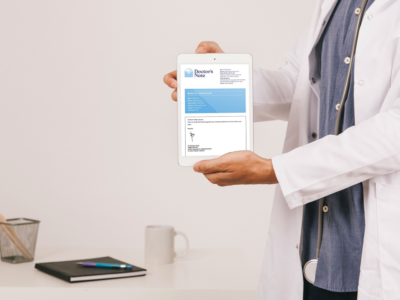Healthy eating is the basis for a healthy life. It improves your performance and your well-being and gives your body what it needs. Moreover, many diseases can be prevented with the right nutrition. Since every person is different and every body has different needs, there is no general recommendation for a healthy diet . The following tips will help make your diet healthier and thus have a major impact on your physical health and performance.
Healthy food and weight loss
The right nutrition is the key to success in both weight loss and muscle building. For the best results, we recommend our free Body Check . Have your BMI calculated and receive personal nutrition and training advice.
Tip 1: Alternate in foods
No food contains all the necessary nutrients. Healthy eating therefore mainly means varied food to optimally care for your body. A combination of energy-efficient and nutritious foods, such as vegetables and whole grain products , is ideal.
Benefits of plant foods:
- No cholesterol
- Higher fiber content
- Provides minerals, vitamins and secondary plant substances
Disadvantages of animal foods:
- Provides cholesterol
- High proportion of saturated fatty acids
- Contains purine (can cause gout)
Therefore, plant foods in particular should be used. For a healthy diet, animal nutrition should only take up a small portion of the diet. Fats, oils and foods with a high sugar content should also be consumed as little as possible.
Healthy breakfast – Start your day with power
A healthy breakfast is important so that you can start your day full of energy . Especially if you want to get or stay in shape, the first meal of the day is crucial. A study from the US shows that young women who eat a particularly high- protein and regular breakfast have less appetite during the day and have less cravings for sweets or salty snacks .
For the protein kick in the morning, we recommend our organic Protein Muesli . Soy flakes provide you with energy for your muscles . Nuts, seeds and berries are there for the great taste . Try it yourself:
Tip 2: Eat as natural and unprocessed as possible
If you want to eat healthy, you should eat as little industrially processed food as possible. During your shopping, especially fresh food should end up in your shopping cart.
Healthy alternatives to processed foods:
Dried fruit instead of sweets
Home-cooked dishes with fresh ingredients instead of ready-to-use products
Freshly squeezed juice instead of sugary supermarket products
Anyone who prepares their own meals with fresh and unprocessed ingredients keeps control over the content. The less precooked or processed they are, the healthier they are.
Tip 3: Cereal products and potatoes contain many nutrients
Cereal products and potatoes contain many vitamins, complex carbohydrates and minerals. The choice of grain products should be based on whole grain grain products , as these contain the highest content of healthy ingredients. Rye and spelled are very suitable.
Cereal products are high in fiber, of which at least 30 grams should be consumed per day. They promote digestion, ensure a better satiety and prevent diseases such as diabetes. Cereal products should therefore be consumed several times a day, preferably in combination with low-fat ingredients. Those who have to eat gluten-free due to an allergy can fall back on grains such as millet, corn and buckwheat. Common grains such as wheat, rye and spelled have a high gluten content.
Tip 4: Five servings of fruit and vegetables per day
Healthy food consists of at least 3 servings of vegetables and 2 servings of fruit per day. They contain many important vitamins and secondary plant compounds. They should be eaten fresh or cooked only for a very short time.
Fruits and vegetables are the ideal addition to the main meals as a side dish. They can also be well integrated into your diet as a snack. Vitamin B2, B6 and B12 in particular play an important role for your physical and mental well-being. Here you can read more about the effect of vitamin B12 and why it is so important in a vegan diet.
Tip 5: Animal products and dairy in the right amounts
In principle, animal products should be eaten in smaller quantities than plant products. However, they should not be completely absent from a healthy diet, as they provide important minerals, such as calcium and iron, and high-quality protein.
Milk and dairy products are therefore part of your daily diet. Meat, sausage and eggs, on the other hand, should only be consumed in moderation, as they are also high in fat, purines and cholesterol. Fish, on the other hand, should be eaten 1-2 times a week, due to its high content of healthy fatty acids.
Animal products within a healthy diet:
- Skimmed milk and dairy products
- Fish
- Low-fat meats (e.g. poultry)
Animal products that should be eaten in moderation:
- Fatty sausage (e.g. salami)
- Fatty meat (e.g. pork)
- Bacon
The following applies to all animal products: preferably lean products. For vegetarians / vegans: do you eat little or no animal products and still want to provide your body with high-quality protein in an easy way? Our Vegan Protein can be an ideal addition to your healthy diet.












Comments